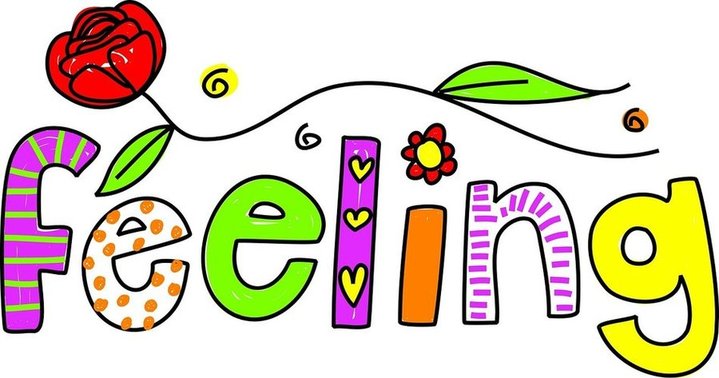As women, we’re often taught to put on a brave face and silence our inner voices. But the truth is, that embracing your emotions and speaking up can lead to a richer, more authentic life.
Bottling up your feelings stifles your growth and prevents genuine connections. It’s time to rewrite the script. By developing self-awareness and learning to express yourself, you can have deeper relationships.
Let me share a story that might resonate with you.
Meet Rachel. For the longest time, she thought expressing her emotions made her weak, so she hid them away. But really, all she wanted was to be authentic and true to herself.
One day, Rachel decided to embark on a journey of self-awareness. She began letting go of the conditioning that had taught her to suppress her feelings.
As Rachel became more self-aware, she discovered a newfound sense of empowerment. She realized that her emotions were not a burden but a valuable source of insight and connection. With this understanding, she mustered the courage to speak up. She started to express how she felt in various situations.
It wasn’t always easy, but Rachel persevered. She learned to express her emotions in a way that honored her authenticity. And with each courageous step, she felt a weight lifted off her shoulders. She experienced a sense of liberation she had never experienced before.
Rachel’s journey is a reminder that your emotions are an essential part of your existence. By embracing them, you can heal, grow, and form meaningful connections with those around you.
If you’re someone who struggles to express your feelings, know that you’re not alone. Many women have walked a similar path. There’s a world of support and understanding waiting for you.
In this blog post, I’ll provide practical tips on embracing your authenticity. You’ll learn how to express yourself in a way that resonates with confidence and strength. I will also provide you with tools to be more self-aware and manage your emotions better.
Let’s break through the limitations that society has imposed on us. We can enter a world where we celebrate our emotions, not stifle them. We’re in this together!
Being Authentic: Why Saying How You Feel Matters
We’ve all been there – those moments when our emotions are screaming to get out. It’s usually not a good idea to keep our emotions bottled up inside. Doing it can lead to frustration or sadness.
It can have several negative impacts on our well-being. So it’s important to find healthy ways to talk about how we are feeling.
Do your best to express yourself in a respectful and honest manner. This will allow you to communicate your needs and get resolution. It will lead to understanding, connection, and fostering healthier interactions with others.
Expressing your emotions can bring you a sense of release, clarity, and contentment.
It’s vital to express your emotions as it goes beyond just the present. By staying true to your feelings and expressing them, you prevent regrets from piling up. Nobody wants those darn “what ifs” looming over their heads in the future, right?
You free yourself from the weight of unspoken words and unexpressed feelings. You live a more genuine life.
Here are 9 practical tips to help you get started:
- Tune into what you feel: Take time to identify and understand your emotions before expressing them.
- Reflect on your needs: Determine what you need from a situation or relationship. Then find a constructive way to communicate it.
- Choose the right timing: Find an appropriate moment to express yourself. Make sure that both you and the other person are open to listening and engaging in a conversation.
- Use “I” statements: Speak from your perspective. Share how you feel rather than making assumptions about others.
- Be honest but considerate: Express your emotions with honesty while being mindful of how your words may impact others.
- Practice active listening: Listen and understand the other person’s perspective.
- Practice assertiveness: Learn assertive communication skills. Express your feelings with confidence and respect.
- Embrace vulnerability: Sharing your emotions requires vulnerability. But, it can also lead to deeper connections and personal growth.
- Don’t hesitate to ask for help: If it’s hard to talk about your feelings, think about talking with a trusted family member, friend, or therapist.
Being authentic and expressing your emotions in a positive way takes time. It also takes practice, self-discipline, patience, and self-compassion. These tips will help you build stronger connections and live a more authentic life.

Overcoming Obstacles in Expressing Your Emotions
It’s tough to express our feelings, even with those closest to us. It’s not always easy knowing how our words will be received or fearing negative consequences. It’s like the right words always escape us when attempting to uncover our actual emotions.
Sometimes, the thought of being judged or rejected can be a real obstacle. It can make you settle for a generic “I’m fine” instead of opening up.
Retreating yourself can feel like an easier path. It takes a considerable amount of courage to admit your emotions and let them out into the world.
Did you know that expressing how you feel is super important for your health? It lets you better understand yourself and your experiences. Plus, it fosters clarity and better connections in your relationships.
So, what are some of the things that may hold you back from saying how you feel? Let’s explore six common obstacles:
- Fear of judgment or criticism: You may hold back from speaking your truth because you’re worried about how others might perceive you or because you’re unsure of the outcome. But it’s important to remember that being true to yourself is what matters most in the end.
- Self-doubt: You may doubt if your emotions are valid or fear they won’t get the attention they deserve.
- Lack of confidence: A lack of self-assurance can make it challenging to express yourself with assertiveness.
- Past negative experiences: When you’ve been undervalued for sharing your emotions before, it can be scary to go through that again.
- Cultural and societal norms: Society can discourage open emotional expression, making it tough to break free from ingrained beliefs and norms. It’s like we’re all expected to behave and feel in a certain way.
- Insecurity and fear of vulnerability: It can be scary to be vulnerable and show your true emotions because it means you’re opening yourself up to possible rejection.
By being self-aware and embracing challenges, you can overcome them, no matter how limiting they may seem. Here are some empowering techniques to help you take those first steps:
- Practice self-reflection: Become aware of the thoughts and beliefs that contribute to your limiting emotions.
- Use affirmations: Change negative self-talk with affirmations that empower your sense of self-worth and self-expression.
- Start small: Begin by expressing your emotions in safe and trusted environments. Build your confidence to share more in a gradual manner.
- Embrace vulnerability: Recognize that vulnerability is not a weakness. It’s a strength that fosters deeper connections and personal growth.
- Practice being present: Letting go of negative past experiences is tough, but essential to living in the present with a positive outlook. Learn from experiences, and then let them go, or you’ll miss out on what life has to offer.
Remember, learning to say how you feel takes patience, practice, and time. It’s okay to take it at your own pace and be gentle with yourself along the way.
Self-Awareness: The Key to Saying How You Feel
Understanding ourselves is like unraveling the mysteries of our inner world. By embracing and exploring our emotions, we gain a deeper understanding of who we are. We learn to go through life’s challenges with less effort and more joy.
Knowing yourself is like having a personal compass. It directs you to manage your emotions and respond with wisdom to tough situations. By noticing and labeling your feelings, you gain valuable insights into yourself.
Here are some practical tips to enhance your self-awareness and make expressing your emotions a little easier:
- Practice mindfulness: Mindfulness helps you cultivate awareness and presence. Take moments throughout the day to tune in and observe how you’re feeling.
- Journaling: Putting your thoughts and emotions on paper can work great for self-reflection. It creates a safe and non-judgmental space to explore your feelings.
- Reflect on patterns: It’s helpful to recognize your emotional patterns in different situations. Knowing what the triggers are can help you focus on improving those areas.
Develop self-awareness and understand yourself better. Start expressing yourself and your emotions in a more authentic and empowered way. As you do this, you’ll be able to navigate through life with greater ease and resilience.
Related article: The Journey to Self-Awareness: 6 Steps to Discovering Your True Identity

Tools for Managing Your Emotions
Learning to express yourself is significant, but managing your emotions is equally important. The key is to be aware of what you’re feeling, understand it, and then handle it in a way that puts you in control. This will grant you confidence and wisdom when saying how you feel.
Here are 6 practical tips and examples to help you manage your emotions:
- Identify and label your emotions:
I mentioned this before, but it’s important to repeat it. Take a moment to pause and recognize what you’re feeling. For example, you might say, “I’m feeling overwhelmed right now because of the tight deadline at work.” - Practice deep breathing:
When emotions run high, take a few deep breaths to calm yourself. Inhale slowly through your nose, hold for a moment and exhale through your mouth. Repeat this a few times until you feel more centered. - Engage in physical activity:
Getting physical is an excellent habit to form. Not only does it help work out pent-up emotions, but it can also improve your emotional well-being. Choose something that gets your heart rate up.For example, going for a walk in the park is a relaxing option, but may not challenge your body enough to get your heart pumping. - Find healthy coping mechanisms:
Engaging in hobbies provides a positive outlet for emotions. It could be listening to music, reading a book, painting, or spending time in nature. Discover activities that bring you joy and help you relax. - Practice meditation:
Take a few minutes each day to meditate. This can create more peace in your daily life, while also bringing long-term balance and self-awareness. Give yourself the gift of this daily practice. - Seek professional help:
If your emotions become overwhelming or interfere with your daily life, consider seeking professional support. A counselor can provide guidance and techniques tailored to your specific needs.
Remember, what works for one person may not work for another. Explore these tips and find the strategies that resonate with you. With practice and self-awareness, you can develop healthy ways to manage and express your emotions.
Related article: The Power of Self-Awareness in Managing Your Emotions: A Step-by-Step Guide
Your emotions are there for a reason
Don’t ignore your emotions. They have a purpose and a message, and pretending they’re not there won’t make them go away. In fact, they’ll keep nagging at you until you give them the attention they deserve.
Acknowledge and care for your emotions and you’ll find yourself feeling so much better.
Take a moment to pause and tune in. Your heart holds valuable insights waiting to be heard. Allowing yourself to feel what is present opens the door to release.
Making room for personal growth may not feel comfortable in the beginning. But, diving into your inner world is a crucial step towards well-being.
Neglecting your negative emotions only allows them to fester and intensify. Instead, take a deep breath, assess the situation, and choose self-awareness as your guide. By doing this, you regain control and prevent them from engulfing your life.
Don’t wish your emotions away, try exploring them instead! Embrace those feelings full-on because they actually present fantastic opportunities for personal growth.
Don’t let negative thoughts accumulate and cause inner turmoil. Instead, channel this energy towards a path of self-improvement and empowerment.
Embrace the notion that every experience in life contributes to your unique path.
Express Your Emotions with Positivity
Life can be a challenging journey, right? Sometimes it can stir up those less-than-great feelings inside us. But that’s okay. What is important is finding ways to express these emotions with positivity. This way we can communicate our true message without confusion. Otherwise, our intentions might get lost in translation.
If you’re ready to take the first step, start by reflecting on what causes your emotions. When you feel overwhelmed, pause and take a deep breath. Center yourself before reacting.
If you don’t feel like talking, try writing about it or even drawing how you feel. Sharing with someone you trust can provide the support and insight you need to feel better.
No matter what’s going on, you can always find a constructive way to communicate your feelings. There’s no need to let anger or sadness rule the day.
To empower your communication and foster self-confidence, here are practical steps you can take:
- Be clear in expressing yourself: Use clear and concise language to articulate your emotions and thoughts.
- Put things into perspective: Consider the bigger picture and gain a broader understanding of the situation at hand.
- Own what you have said: Take responsibility for your words and their impact.
- Maintain a firm yet respectful tone: Express yourself with assertiveness. Make sure your message is heard while treating others with respect.
When we take the time to express our emotions in a positive way, we nurture our personal growth and strengthen our relationships. It’s a win-win!

Final Words
Learning to express our emotions in a healthy way is a journey worth embarking on. It’s a skill that we can cultivate with time and practice.
Often, we let our past experiences and external influences dictate how we should feel and what we should say. But, this approach can take a toll on our relationships and our mental and emotional well-being.
When we suppress or ignore our emotions, they find their way to the surface in unhealthy and unpredictable ways. Also, bottling up our feelings can breed resentment. It may manifest later as passive aggression, causing harm to ourselves and those around us.
So, when we embrace positive emotional expression, we pave the way for a more authentic life. By acknowledging and dealing with our emotions, we foster emotional well-being and personal growth.
Related article: Empower Yourself: How to Master Your Emotions for a Fulfilling Life
Now, it’s your turn to share! How have you learned to express your emotions? I’m curious to hear your experiences. Drop a comment below and let’s continue this conversation!


0 Comments